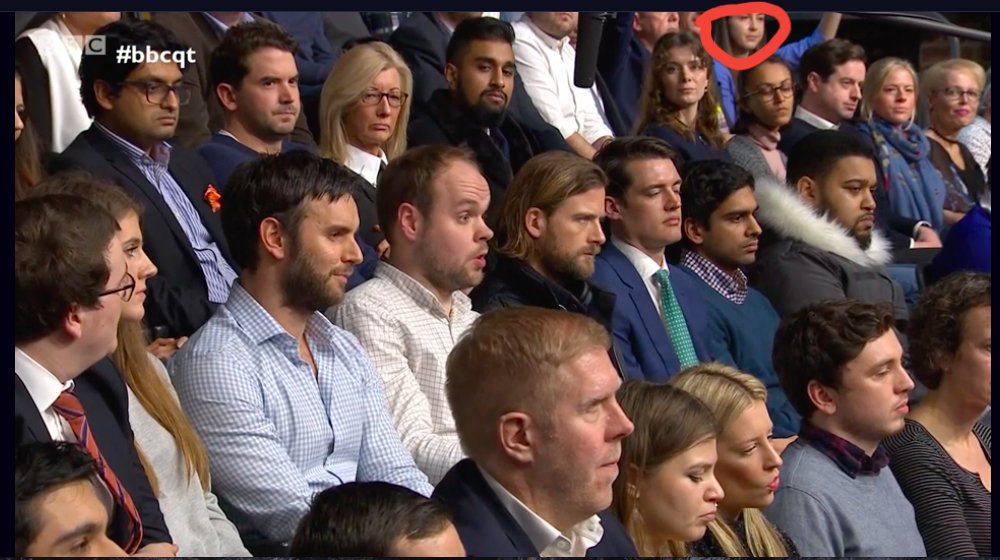Ok so I completed the @ukhomeoffice survey about international students.
I do not know who advised you on the question wording, but here are some thoughts from a Romanian PhD "international student" trained in social research methods in three UK universities.
I do not know who advised you on the question wording, but here are some thoughts from a Romanian PhD "international student" trained in social research methods in three UK universities.
Operationalisation is key to any social research.
Students from the EU and from non-EU countries will experience their time at university differently.
Huge difference in fees&more pressures from the #hostileenvironment on non-EU as they constantly have to prove their activity.
Students from the EU and from non-EU countries will experience their time at university differently.
Huge difference in fees&more pressures from the #hostileenvironment on non-EU as they constantly have to prove their activity.
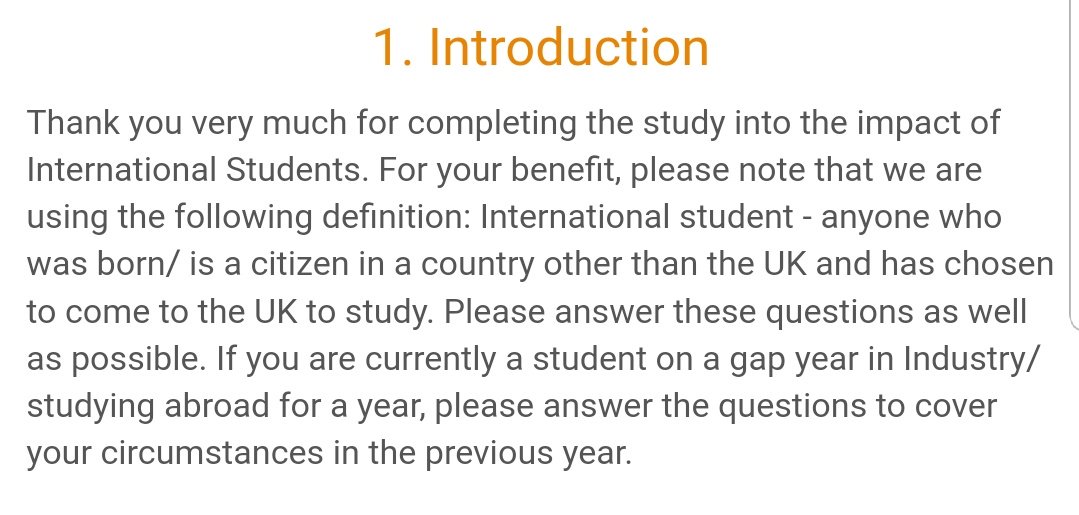
What is the point of this? Universities have data on the number of international students. 
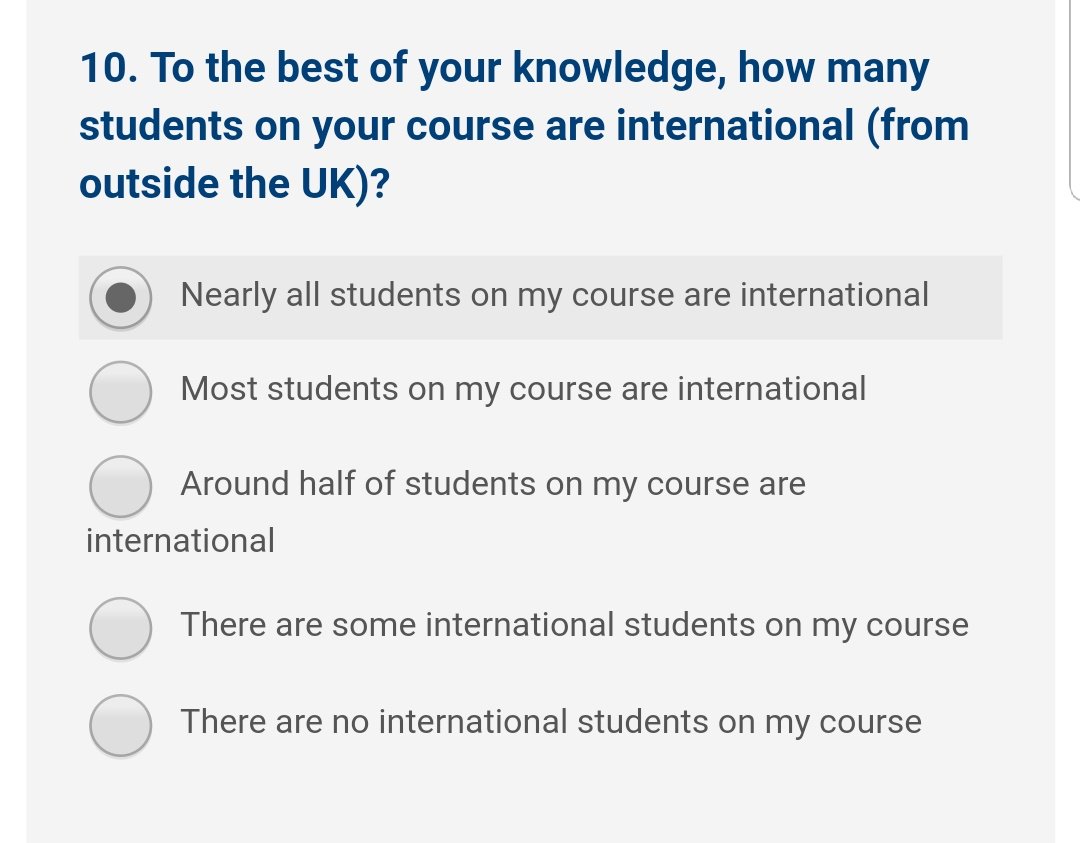
All the questions on "impact" are subjective and they may force the respondent to think of an impact when they have not even problematised this before.
No "do not know" option etc.
"Studying" and "academic university experience" as a broad phrase are two separate aspects.
No "do not know" option etc.
"Studying" and "academic university experience" as a broad phrase are two separate aspects.
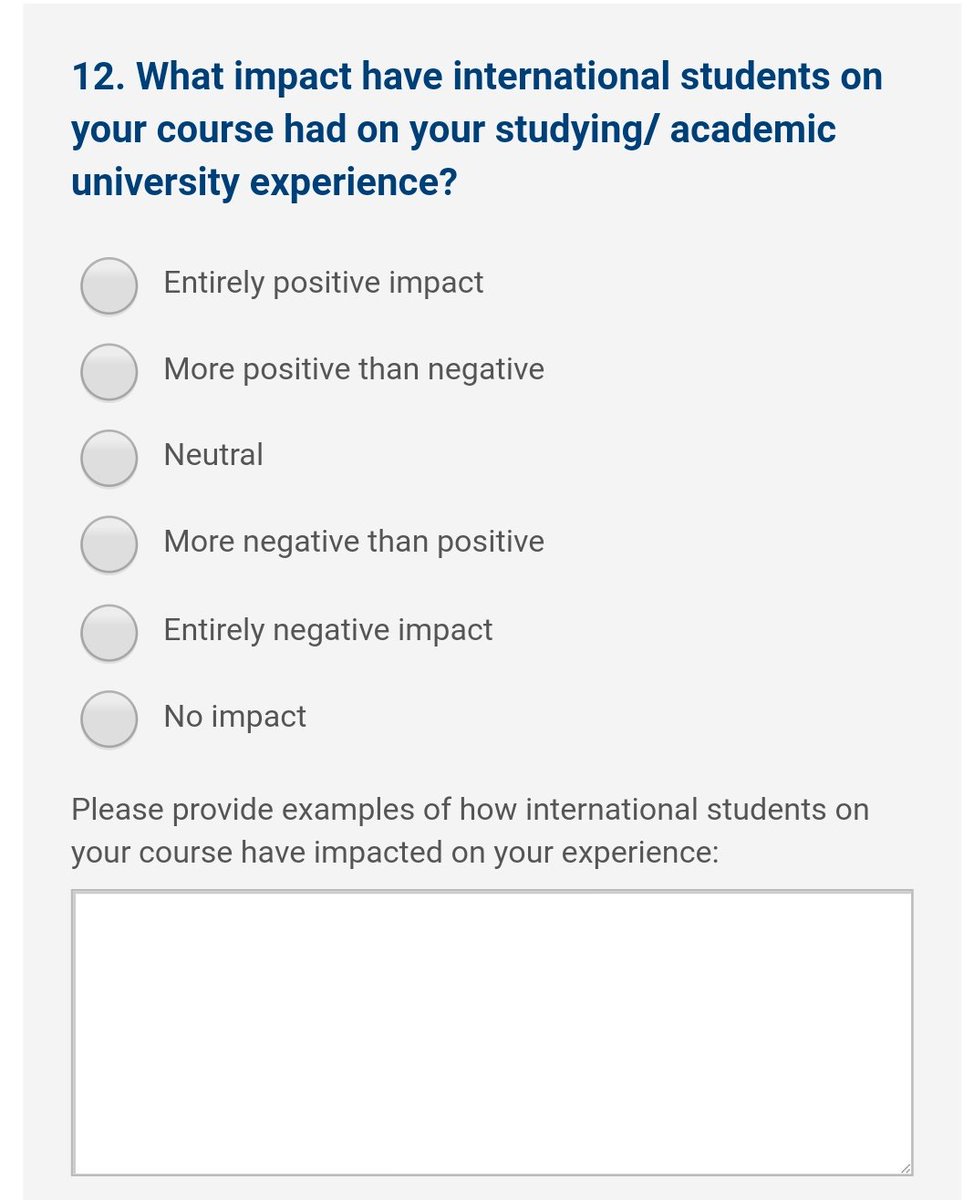
Similar here.
Does "social experience" mean the same for all respondents? Doubt so.
Text box statement assumes international students specifically have impacted said experience.
Does "social experience" mean the same for all respondents? Doubt so.
Text box statement assumes international students specifically have impacted said experience.
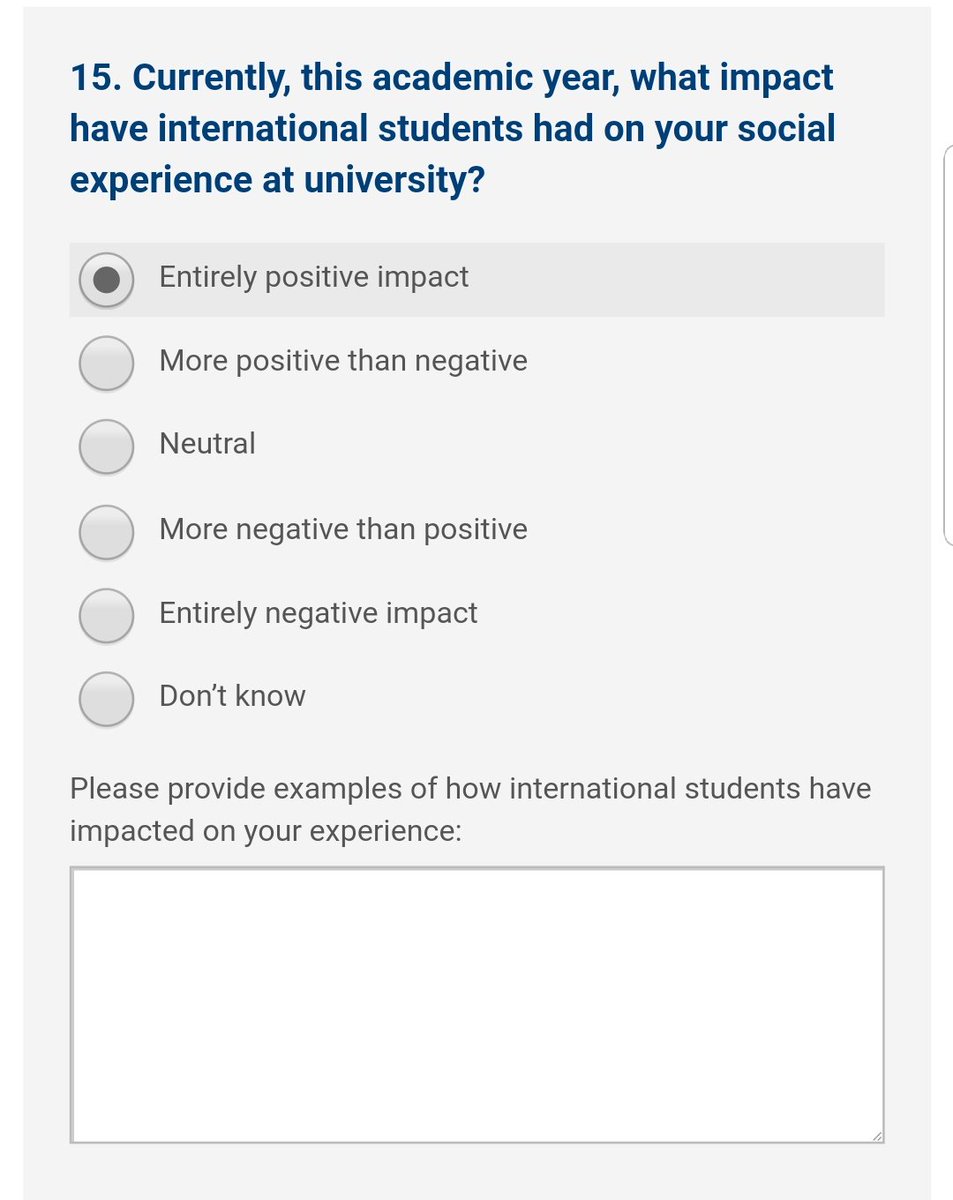
I could not resist to comment on this. 
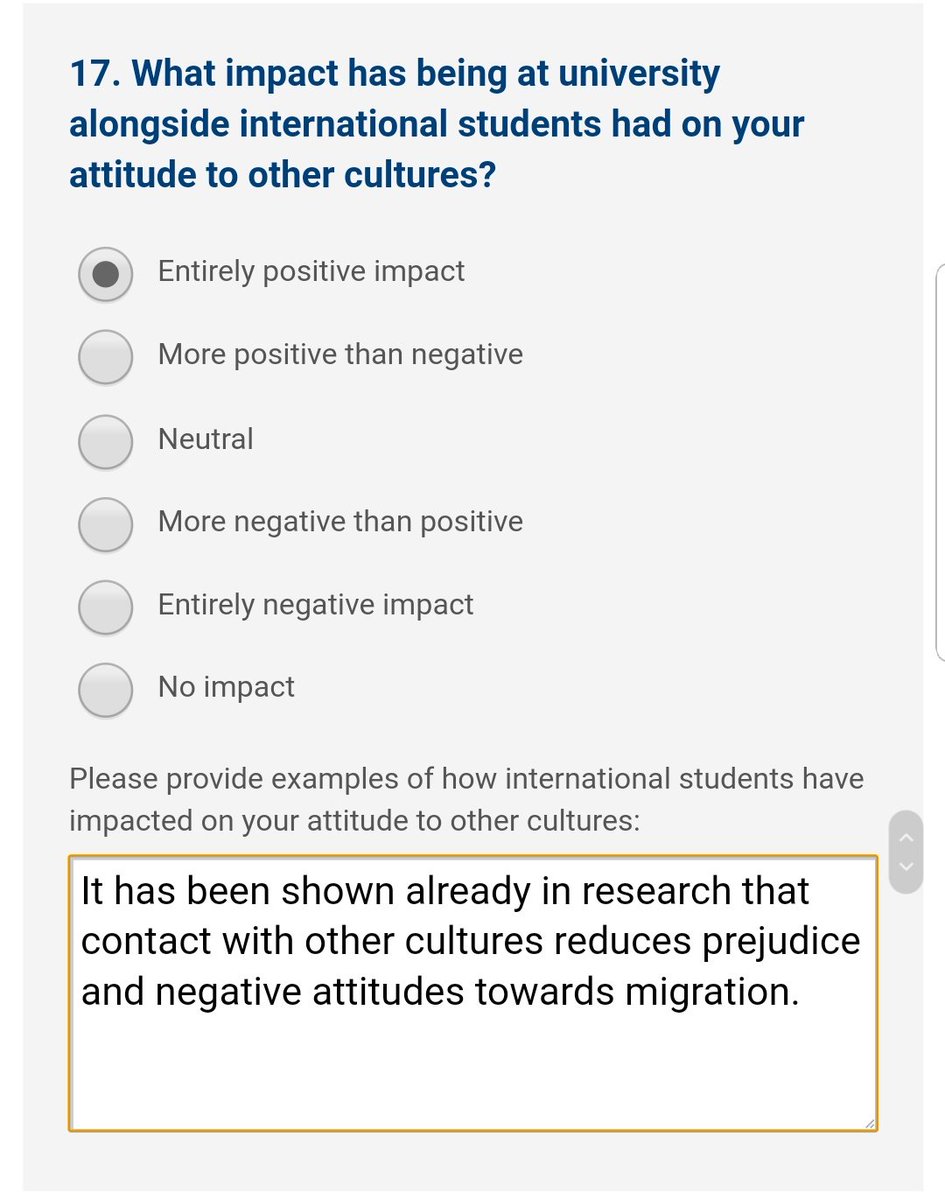
Sampling!
The survey is opened to everyone i.e. everyone can access the link, so the results will not be valid.
I can post this on my local anti-migration group (I don't have one, but let's assume) and ask everyone to say negative stuff about international students.
The survey is opened to everyone i.e. everyone can access the link, so the results will not be valid.
I can post this on my local anti-migration group (I don't have one, but let's assume) and ask everyone to say negative stuff about international students.
Finally, what is the research question this survey tries to answer?
I fail to see the point.
Limiting international student numbers if the survey results say that they had a "negative impact", with an inappropriate sample and simplistic and often meaningless questions?
I fail to see the point.
Limiting international student numbers if the survey results say that they had a "negative impact", with an inappropriate sample and simplistic and often meaningless questions?
The HO have seen our feedback and now they display this message.
Do not worry! Just turn on incognito mode and can take the survey as many times as you want, without being a student.
The solution is called student login via institutions. You need some better people in your team
Do not worry! Just turn on incognito mode and can take the survey as many times as you want, without being a student.
The solution is called student login via institutions. You need some better people in your team
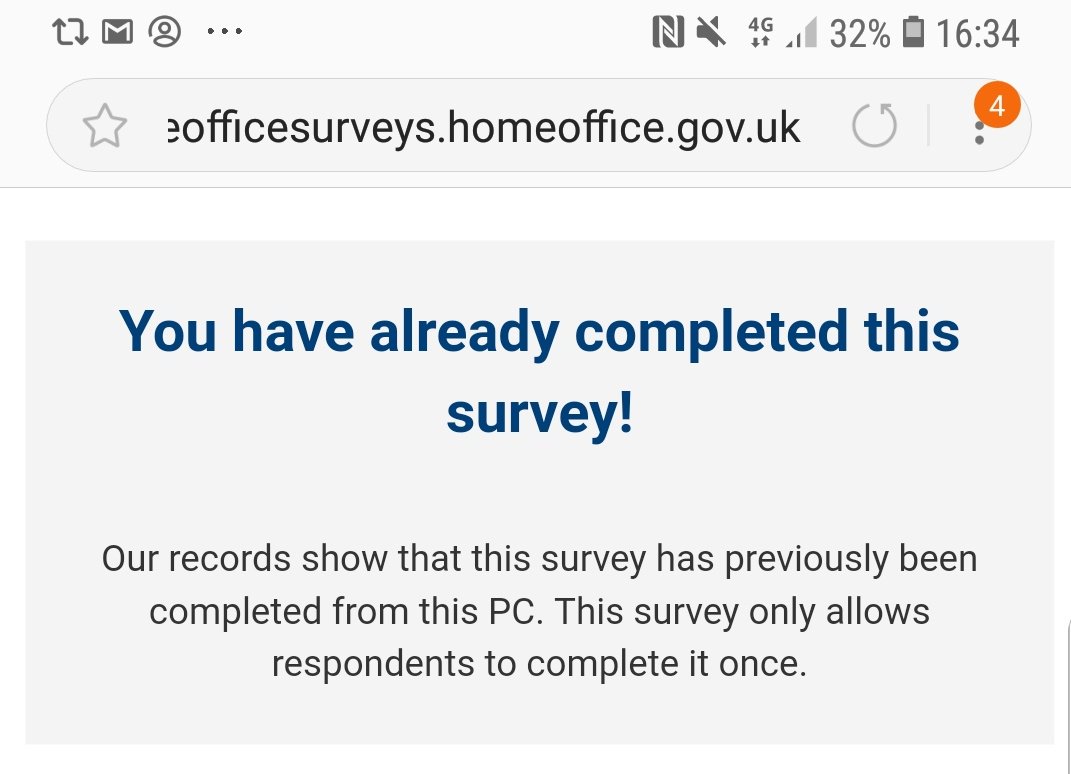
• • •
Missing some Tweet in this thread? You can try to
force a refresh


